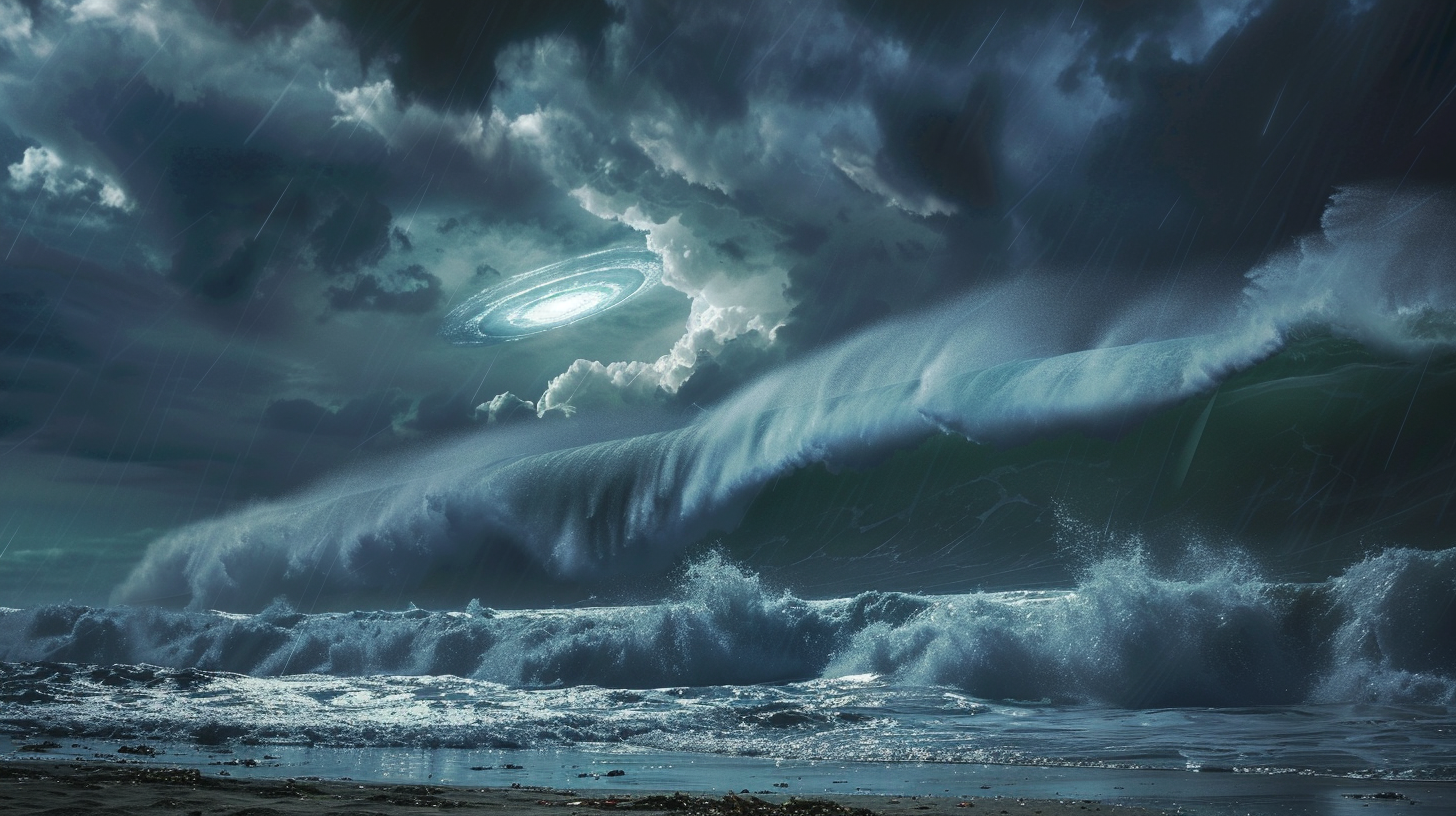Within the intricate tapestry of ancient tales lies the mysterious Sumerian account of the “Deluge.” Across the ages and continents, flood stories from various cultures present diverse interpretations and subtleties. The uncanny similarities between Sumerian flood narratives and stories from distant lands beckon us to ponder the fascinating notion of a shared cosmic influence behind these age-old legends.
Nestled within Sumerian mythology, the Deluge saga, immortalized in the Epic of Gilgamesh and other ancient texts, narrates a cataclysmic flood engineered by the divine to cleanse the Earth of human transgressions. Under the guidance of the god Enki, the wise leader Ziusudra constructs a massive ark to protect himself, his kin, and a menagerie of creatures from the impending deluge. Following the flood, Ziusudra and his companions emerge to repopulate the world—a narrative echoing through diverse civilizations’ flood myths.
From the biblical account of Noah’s Ark to the ancient Mesopotamian tale of Atrahasis, flood stories have captivated humanity for eons. Nonetheless, one persistent query remains: what lies beneath the universality of these tales? An intriguing proposition posits the presence of a shared cosmic wisdom.

Proponents of this notion suggest that ancient civilizations may have engaged with advanced beings from distant realms, who imparted knowledge and insights that manifested in myth and folklore. According to this perspective, the parallels between Sumerian flood myths and analogous stories in diverse traditions indicate a shared ancestry—a cosmic force shaping the collective consciousness and heritage of humanity.
While the idea of shared cosmic wisdom remains conjectural, it prompts us to reassess our interpretations of ancient lore and its origins. Whether interpreted as allegorical tales of divine retribution or reflections of encounters with superior entities, flood myths draw us into the intricate realms of human cognition and our enduring fascination with the mysteries of the cosmos.
As we venture further into the scrutiny and decryption of these ancient manuscripts, we are reminded that history transcends mere relics of the past. Whether the Great Flood symbolizes a historical event, a metaphorical depiction of natural disasters, or an enigmatic riddle, its reverberations across diverse cultures serve as a testament to the enduring influence of myth and the perpetual quest for knowledge amidst the realms of uncertainty.
